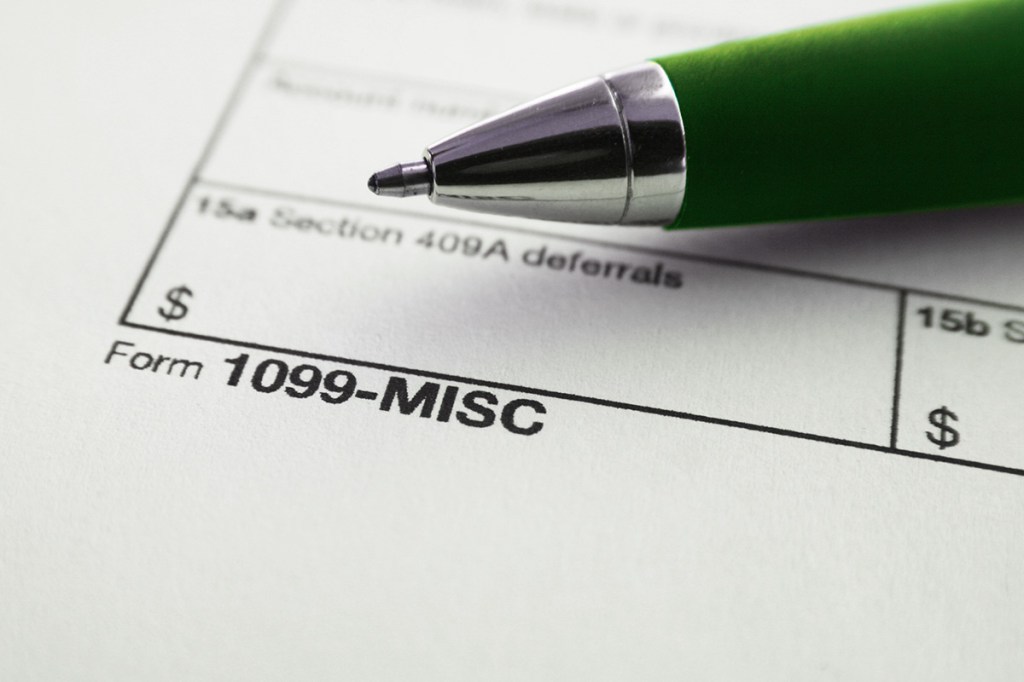
Not looking for info on property management certifications? See our article on Yardi certification, free support tools and more.
If you manage properties, you’re already certified according to the requirements of your state. But that’s where the learning begins, not where it ends. Furthering your education makes you better at your job and less likely to run into common legal issues that can harm your business and reputation. It can also make you a higher earner and more competitive hire for property owners or other management companies.
There are many ways to earn a property management certification that go above and beyond state requirements. This article looks at a handful of certification opportunities for professionals hoping to advance their careers.
1. Certified Property Manager (CPM)
The Certified Property Manager (CPM) is one of the most common and recognized property management certifications in the industry. In fact, it is arguably the gold standard for property management professionals across various markets. It is offered exclusively by the Institute of Real Estate Management (IREM).
In order to obtain a CPM license, you must have at least three years of experience in property management, among other requirements listed below. Applicants must demonstrate proficiency in finance, marketing, maintenance, ethics and more in order to finish the program successfully. It’s a great option for anyone looking to make a long-term career out of property management.
To earn a CPM, you must:
- Have 36 months of qualifying real estate management experience
- Submit a completed CPM application
- Choose one of four education tracks
- Pass one of two management plan exams
- Pass the CPM certification exam
- Attend an ethics course and pass the exam
- Be current on your national and chapter dues
- Hold a real estate license or verify that you aren’t required to have one
- Be interviewed and approved by your local chapter
To be a CPM, you have to prove that you’re committed to property management. IREM says, “The CPM is the elite mark of distinction those invested in real estate demand when they seek someone they trust with their assets.”
Learn more about getting your CPM
2. Residential Management Professional (RMP)
The National Association of Residential Property Managers (NARPM) is one of the largest property management associations for residential operators. As such, it offers a range of property management certifications. These include the Residential Management Professional (RMP), Master Property Manager (MPM) and more. Whether you specialize in maintenance, bookkeeping or a little bit of everything, there’s something that meets your needs. Eligibility requirements differ per certification.
The Residential Management Professional (RMP®) certification is available through the National Association of Residential Property Managers (NARPM®). It’s a popular designation that helps you build credibility and stand out to potential clients.
To be a certified RMP, you must:
- Submit a completed application
- Manage 100 units or more over a two-year period
- Complete 18 hours of NARPM education courses
Members are listed by designation on the NARPM website. If you have an RMP, you’ll appear higher on the list, increasing your visibility and status. According the NARPM, “The RMP designation process makes you a more engaged NARPM member, builds character, enhances your skills and makes you better at every aspect of your job.”
3. Master Property Manager (MPM)
Also administered by NARPM, the Master Property Manager (MPM®) designation is the highest level an individual member can achieve. It’s is available to members who already have their RMP designation. Becoming an MPM indicates that you are an accomplished and trustworthy management professional and sets your business up to become a Certified Residential Property Management Company (CRMC®) if you so desire.
To get your MPM designation, you must:
- Submit a completed application
- Get your RMP designation
- Manage 500 units or more over a five-year period
- Complete 24 hours of NARPM education courses
- Submit professional letters of recommendation
Learn more about NARPM certifications
4. Certified Apartment Manager (CAM)
The Certified Apartment Manager (CAM) is a property management certification offered by the National Apartment Association (NAA). It’s geared toward professionals who manage multifamily communities and want to boost their ability to manage communities and meet their owners’ investment goals. In-person and online classes are available. Applicants must have at least one year of experience in the industry. Check out the CAM self-assessment tool to see if you’re ready and qualified for this credential.
To get your CAM credential, you have to:
- Meet the minimum of 12 months of onsite property management experience
- Complete all CAM coursework (totaling 40 hours)
- Pass your CAM exam within one year of declaring candidacy
Wondering if you’re ready to earn your CAM credential? Take this CAM self-assessment.
Like the other property management designations listed here, once you’ve earned your CAM title, you will be able to use it to promote yourself as a highly skilled and certified property manager. This includes claiming a digital badge to feature on your website and in your email signature.
5. Accredited Residential Manager (ARM)
Like the CPM, the Accredited Residential Manager (ARM), is offered by IREM. As the name suggests, it’s geared toward residential property managers. Compared to the CPM certification, there are fewer barriers to entry. For instance, ARM only requires one year of experience in residential property management. Licensure requires applicants to take a set of courses and pass a final exam. IREM is a leader in property management certification and education, so we invite you to explore their education page at your convenience.
6. Certified Commercial Investment Member (CCIM)
The Certified Commercial Investment Member (CCIM) is a designation offered by the CCIM Institute. If you specialize in commercial property management, this course may be for you. You will need two years of experience in commercial real estate to qualify. The board will also review your portfolio and check that it meets minimum requirements, including at least one of the following:
- Three qualifying activities, minimum $30 million
- 10 qualifying activities, minimum $10 million
- 20 qualifying activities, no dollar minimum
7. Certified Self-Storage Manager (CSSM)
This is the only property management certification on our list aimed exclusively at self storage operators. It’s offered by the Self Storage Association (SSA) and requires no experience in the industry to qualify. In addition to certification, continuing education is offered as part of the program. It’s worth noting that CSSM-licensed facility managers must take a few continuing education credits every two years in order to renew their certification.
8. Real Property Administrator (RPA)
The Real Property Administrator (RPA) is offered by BOMI International. It’s a great property management certification for operators of commercial and institutional properties (e.g., office buildings, schools, hospitals). BOMI allows applicants to pursue the RPA credential at any time in their career. However, the award will not be given until the applicant has three years of property management experience. Competency credits may be offered to those with prior education in the industry.
9. Certified Manager of Commercial Properties (CMCP)
The Commercial Real Estate Certification Institute (CRECI) offers the CMCP. It is an independent certification institute created by Building Owners and Managers Association (BOMA) and BOMI. Given this connection, you may notice all three associations mentioned as part of this property management certification.
These organizations are leaders in commercial real estate, so this is definitely a certification to explore. It’s a great way to boost your status as a commercial property manager early in your career. To be eligible, applicants must meet at least one of the following criteria:
- Four-year degree and one year of property management experience
- Two-year degree and two years of property management experience
- No degree and four years of property management experience
- 30 hours of verifiable education in commercial property management
10. Certifications offered by the National Association of Residential Property Managers (NARPM)
The National Association of Residential Property Managers (NARPM) is one of the largest property management associations for residential operators. As such, it offers a range of property management certifications. These include the Residential Management Professional (RMP), Master Property Manager (MPM), Certified Support Specialist (CSS) and more. Whether you specialize in maintenance, bookkeeping or a little bit of everything, there’s something that meets your needs. Eligibility requirements differ per certification.
Learn more about NARPM certifications
11. Professional Community Association Manager (PCAM)
The Community Associations Institute (CAI) offers the PCAM among other certifications. It’s the only organization on this list for professionals who manage homeowner associations and condo communities. Certification requires a minimum of five years’ worth of industry experience.
CAI also offers the Association Management Specialist (AMS), which only requires two years of experience. Some professionals with the PCAM may even graduate to the Large-Scale Manager (LSM), which requires PCAM certification and 10 years of experience (by far the most on this list).
12. Accredited Community Manager (ACM)
The Manufactured Housing Institute (MHI) is easily the most recognizable manufactured housing association. Their ACM credential is obtained through two courses that cover every aspect of community management. The first course does not require industry experience, but the second course requires two years. If you’re in the manufactured housing space and plan to stay there, you could consider this a must-have certification.
13. LEED Professional Credentials
The Leadership in Energy and Environmental Design (LEED) program offers a range of property management certifications. These include the LEED Green Associate, LEED Accredited Professional (AP) and LEED Fellow. Each certification requires you to demonstrate expertise in sustainable building practices. These credentials should be explored by property managers who are involved with (or want to be involved with) environmentally friendly buildings.
Bonus: Yardi resources
Yardi Breeze clients already know the Help Center is available online and accessible to any authorized user. It’s the best place to start when you need a little guidance. And don’t forget about the Breeze live chat feature that connects you with a real Breeze expert, often in just a few seconds. Our unlimited chat support gives you live access to expert help from 8:30 a.m. to 6:30 p.m. Central Time, Monday through Friday. After hours, questions will be submitted via email, and a live agent will respond when work hours resume.
Breeze also offers an annual virtual user conference called REfresh. It’s a great opportunity to ask questions, learn more about your software and connect with other users of Breeze and Breeze Premier. The next conference will be April 19-20, 2023.
Finding the right property management certification for you
The property management community is large, but it’s also segmented by industry, making it easier to find the right certification for you. If you’re not sure where to start, we recommend exploring these property management associations and narrowing your search from there.
We also recognize there are likely other deserving certifications out there that did not make this list. Still, we hope this article was helpful and informative, and we wish you the best of luck in reaching your professional goals!



